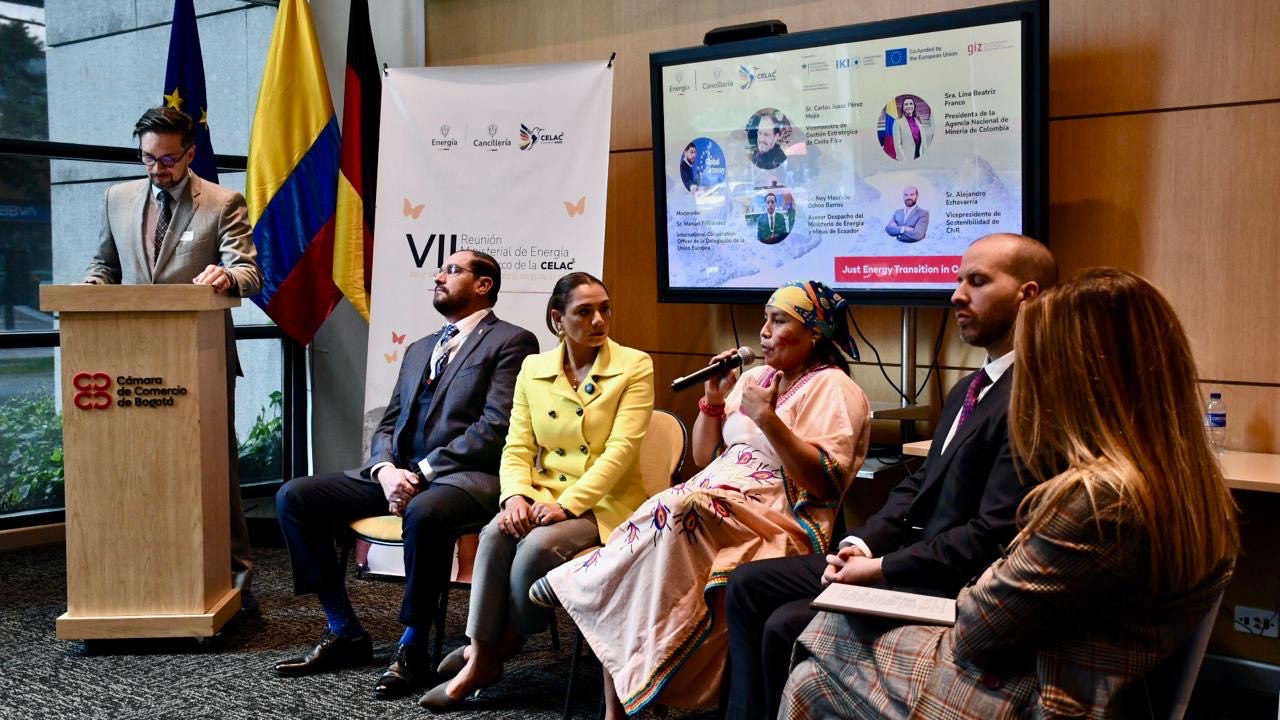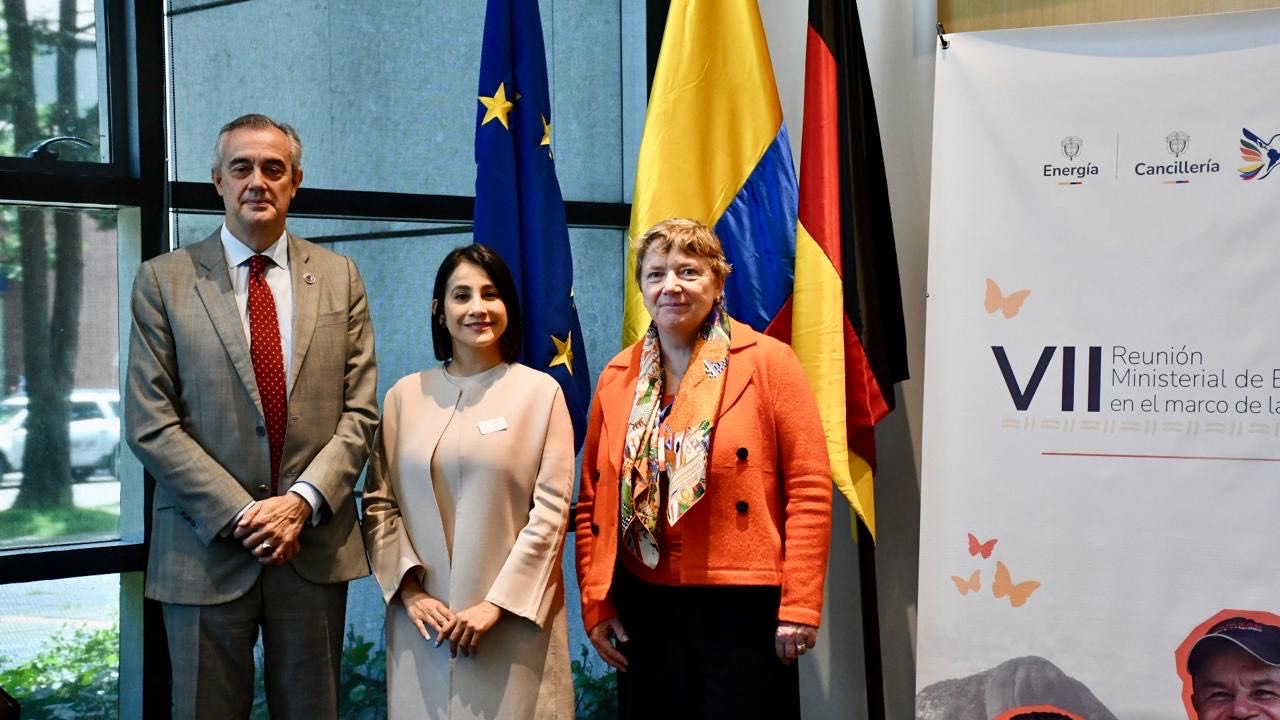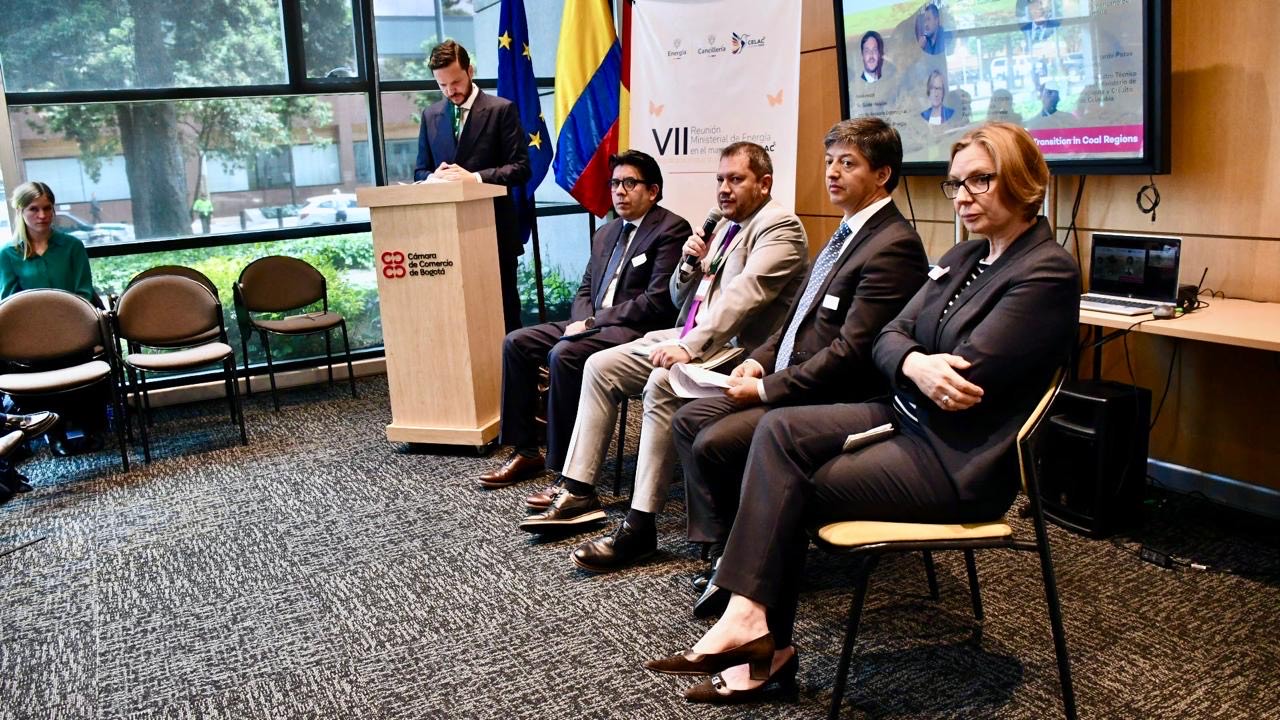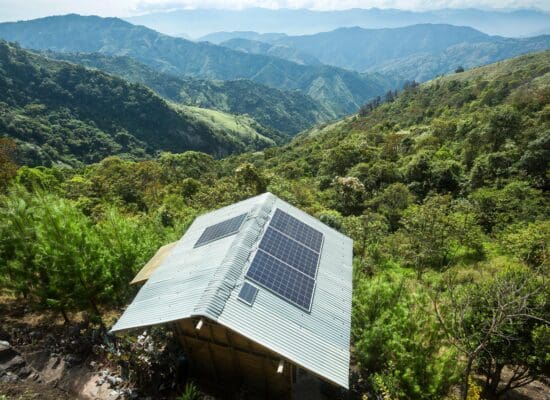
On 23 July 2025, Colombia, as part of its temporary presidency of the Community of Latin American and Caribbean States (CELAC), hosted a high-level dialogue on the just energy transition (JET) in coal regions. Organised as part of the Innovation Regions for a Just Energy Transition (IKI JET) project and implemented by the Deutsche Gesellschaft für Internationale Zusammenarbeit (GIZ) in partnership with Colombia’s Ministry of Mines and Energy, the event brought together government officials from Bolivia, Colombia, and Costa Rica alongside representatives from the European Union and Germany, representatives from development banks, private sector actors, and community leaders. Discussions centred on how coal-dependent territories—especially Cesar and La Guajira in Colombia—can decarbonise while safeguarding livelihoods and enabling new, locally anchored economic opportunities.
The speakers stressed two priorities: (1) accelerating the decarbonisation of the energy system through expanded transmission infrastructure, increased investment, and skilled labour; and (2) ensuring that the transition is people-centred and co-designed with communities from the start.
Opening of the event
The event opened with German Ambassador to Colombia Martina Klumpp who underscored the relevance of structured, long-term planning for regions in transition, drawing on Germany’s coal exit pathway. She called for placing finance at the centre of strategy, for aligning territorial planning with community priorities, and for technical cooperation to build local capabilities. The Ambassador referred to platforms supported by the German government, including the IKI JET project, as practical vehicles to turn lessons into action in places like Cesar and La Guajira.
Building on this, Félix Fernández-Shaw, Director for Latin America and the Caribbean at the Directorate-General for International Partnerships (DG INTPA) at the European Commission, stressed that just transition policies must distribute costs and benefits fairly. Mining will still be necessary for supplying materials for clean energy technologies, he noted, but it must be environmentally and socially responsible. He argued that phasing out coal and implementing infrastructure projects for the energy transition requires early, sustained engagement with affected communities, ensuring alternative livelihood pathways and socioeconomic development.
Vice Minister of Mines Sorrel Parisa Aroca, from Colombia, then echoed these priorities in presenting the Country Platform on Just Energy Transition for Colombia (in Spanish, Plataforma TEJ – Transición Energética Justa), a national initiative to diversify coal-region economies with a focus on equity, innovation, and community participation. Its key pillars include inclusive territorial planning, access to financing for communities, energy diversification, and local innovation. She noted persistent gaps in labour reconversion, social inclusion, and investment, and outlined the measures that are being developed to narrow these gaps: a new mining law, a Mining Promotion Fund to finance formalisation and inclusion, and a national mining safety policy aimed at raising standard—especially for small and medium-scale producers.

Panel 1: Financing the JET
Minister of Hydrocarbons and Energy Alejandro Gallardo Baldivieso, from Bolivia, outlined two major programmes with the Inter-American Development Bank (IDB) and the World Bank that aim to complete rural electrification in Bolivia and enable broader participation in the energy transition. The country has set targets of 65% renewable electricity by 2033 and 75% by 2050, which are to be achieved through new hydro, wind, and solar projects and by creating cross-border transmission links with Brazil, Paraguay, and Chile to enable future exports. He also stressed international cooperation as instrumental for both decarbonisation and rural development.
Building on this regional perspective, Marcelino Madrigal, Head of the Energy Division at the IDB, noted that although Latin America operates some of the world’s cleanest power systems, transitions in coal regions require complex, community-wide adjustments. Over the past five years, the IDB has mobilised significant climate finance to support renewable auctions, electric mobility, transmission, and regulatory reforms. He urged governments to create country platforms to coordinate public, private, and development finance and to sequence investments with policy action. The most challenging steps, he observed, are those that focus on transforming entire local economies rather than simply reskilling plant workers.
From a national finance standpoint, Leonardo Pazos Galindo, Acting Technical Deputy Minister of the Colombia’s Ministry of Finance and Public Credit, stressed the need to reduce reliance on oil and coal exports through economic diversification. He pointed to planned investments in clean infrastructure, household solar and solar-powered water systems, mass transit, land titling for informal miners, and agricultural reforms—measures designed to spread benefits beyond the energy sector.
Closing the first panel, Esther Gravenkötter, Director for Colombia at the German development bank KfW, outlined the core requirements for development finance: clear government priorities anchored in long-term policy; advanced project preparation (including feasibility studies); realistic timelines and financing structures; and governance frameworks that address credit, currency, and environmental and social risks. She highlighted the value of consistent social and environmental taxonomies and digital monitoring tools to de-risk projects in remote regions, noting that KfW positions itself as a long-term partner blending concessional loans and financial assistance.

Panel 2: Territorial planning and community leadership
Amalfi Romero Epinayu, leader of the Indigenous community Los Cabritos in La Guajira, stressed that a just transition is only credible if communities shape it from the outset. Through IKI JET, her community is developing a community life plan (in Spanish, plan de vida) that links energy access and production with cultural continuity and local priorities. She highlighted the role of women’s leadership in sustaining social cohesion and managing shared assets.
From a regional policy perspective, Carlos Isaac Pérez Mejía, Vice Minister of Strategic Management, Costa Rica, described the country’s model of embedding community consultation into climate policy. Although Costa Rica’s power system is already largely renewable, the government is undertaking extensive engagement, including consultations on its updated nationally determined contributions, recognising that even “clean” infrastructure, especially large hydro projects, can have social impacts. Rising demand from the electromobility and digital industries requires forward-looking planning to safeguard equity alongside reliability.
Colombia’s mineral planning context was outlined by Lina Beatriz Franco, President of the National Mining Agency (in Spanish, Agencia Nacional de Minería [ANM]), who shared a spatial overview of constraints and opportunities: only a small share of the territory is under mining titles, large protected areas remain off limits for mining, and there is significant potential for mining copper, with its strategic importance for clean technologies. Upcoming auctions will focus on non-restricted areas, with an intent to link extraction to value-added processing and local development.
Bringing a private sector view, Alejandro Echavarría, Sustainability Manager at Colombian Natural Resources (CNR), one of the largest private coal-producing companies in Cesar, warned that a rapid coal phase-down could affect roughly 50,000 jobs in the department. He advocated for a productive transition that repurposes assets, such as repurposing the 760-km rail corridor (currently used mainly for coal) to serve diversified freight and catalyse new industries. He also pointed to compensatory lands that, if managed well, could support reforestation and bioeconomy initiatives.
Closing the discussion, Juliana Suso, Vice President of Institutional Relations at ISA Interconexión Eléctrica—the largest electricity transmission company in Colombia—argued that each territory requires a tailored pathway and that success depends on shared responsibility and multi-year support. With an estimated 500,000 households in Colombia still lacking electricity, ISA’s community energy initiatives, such as Pilas de Sararao in La Guajira, aim to pair access with income-generating activities so that systems remain financially and socially sustainable after their installation.
Key takeaways
In summary, the speakers emphasised that a credible just energy transition must be people-centred from the outset and must be grounded in local priorities, rights, and gender equality. Coal regions will require diversified economic opportunities and targeted workforce development, especially for women and young people, alongside investment in infrastructure like transmission and community-scale energy systems. Planning and finance need to move in step, and country platforms are seen as a promising way to align public, private, and development finance; and reusing existing assets—from railways to post-mining lands—can further accelerate new value chains if it is linked to viable markets.
The event underscored that coordinated policy, sustainable finance, and technical cooperation are essential for translating transition strategies into local impact. The stakeholders who attended the event renewed their commitment to productive transformation, regional planning, and business models that connect renewable energy development with local livelihoods in La Guajira and Cesar. With coal still central to these economies, the participants noted that aligning national policy, territorial planning, and community leadership can help to manage the risks of transition and ensure that the benefits are widely shared—as long as finance, capabilities, and governance are appropriately aligned.
Stay Informed and Engaged
Subscribe to the Just Energy Transition in Coal Regions Knowledge Hub Newsletter
Receive updates on just energy transition news, insights, knowledge, and events directly in your inbox.


